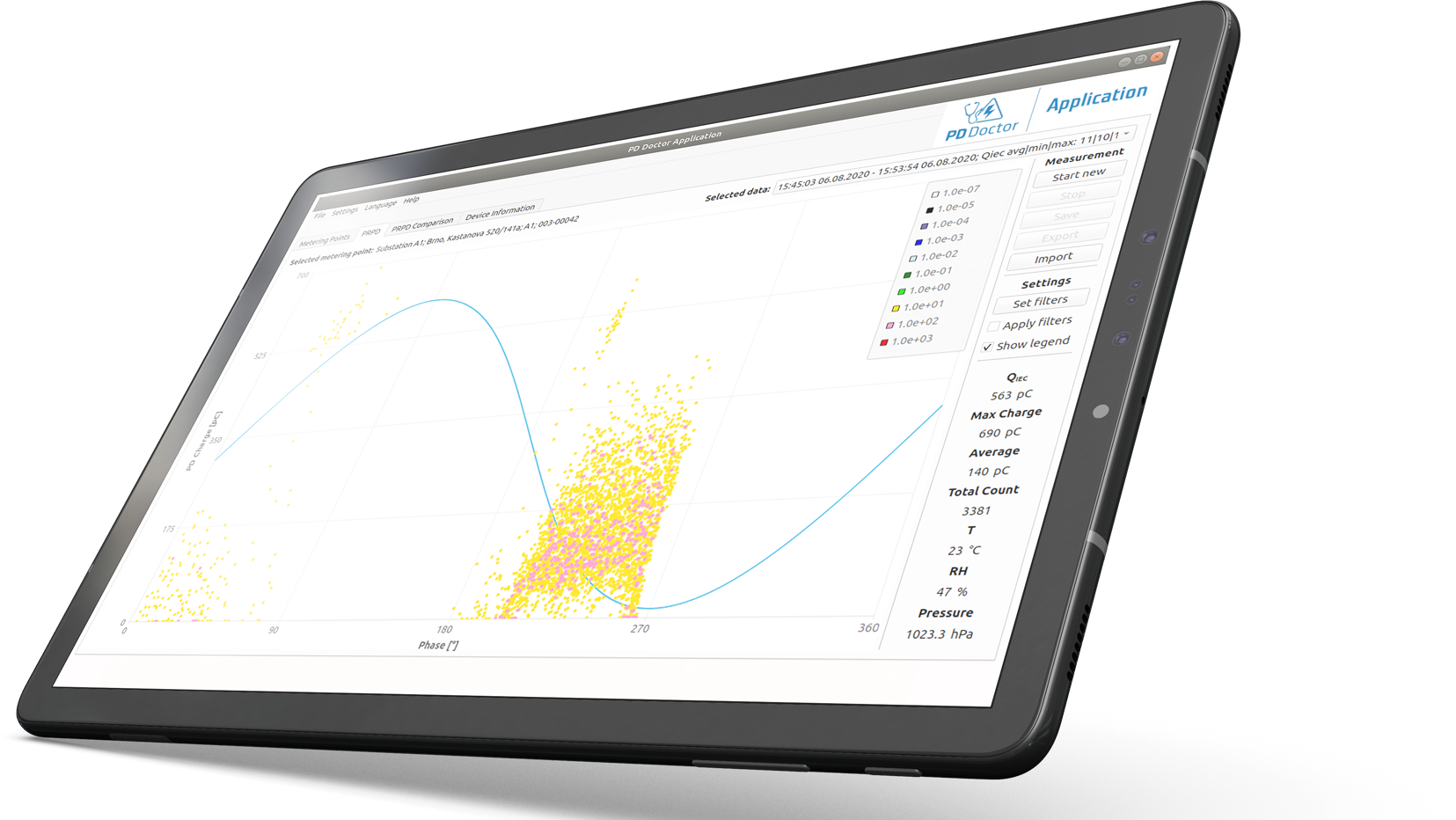What is a partial discharge?
Partial discharge (PD) is a type of electrical breakdown that occurs when only part of the insulation between two conductors is damaged. This results in localized increase in electrical current, which can cause damage to the surrounding insulation. Partial discharge can occur in any type of electrical equipment but is most commonly found in high-voltage equipment such as transformers, generators, and cables.
Partial discharge can be caused by several factors, including manufacturing defects, environmental factors, and electrical stress. When left unchecked, Partial discharges can cause premature failure of the equipment it is occurring in.
How is partial discharge measured?
Partial discharge can be measured using a variety of methods, including electrical, acoustic and optical. The most common method is an electrical measurement, which uses sensors to detect the current flowing through the insulation during a Partial discharge event.
Acoustic measurement involves using microphones to listen for the sound of PD. This method is less common but can be used in cases where electrical measurements are not possible.
The optical measurement uses light to detect partial discharges. This method is typically used in high-voltage equipment where electrical measurements are not possible.
What are the types of partial discharge?
There are three basic types of PD:
- External – in gases in the neighborhood of electrodes with small radius or large curves
- Surface – in the neighborhood of electrodes on the border between solid and gas dielectric
- Internal – in gases surrounded by a solid or liquid dielectric



What are the benefits of partial discharge analysis?
Partial discharge analysis (PDA) – PD Doctor offers several benefits, including:
- Proactive detection of problems: By monitoring for Partial discharges, PDA can detect problems before they cause equipment failure.
- Early detection of problems: PDA can detect problems in their early stages when they are easier to fix.
- Reduced downtime: By detecting and fixing problems before they cause equipment failure, PDA can help reduce downtime.
- Improved safety: PDA can help improve the safety of electrical equipment by detecting and fixing problems before they cause a failure.
- Improved reliability: By reducing the number of failures, PDA can help improve the reliability of electrical equipment.
What are the limitations of partial discharge analysis?
Partial discharge analysis is not a perfect diagnostic tool and has some limitations, including:
- False positives: In some cases, PD can be caused by factors other than electrical breakdown. This can lead to false positives, which can cause unnecessary downtime.
- Difficulty in interpretation: Partial discharge measurements can be difficult to interpret, and expert analysis is often required.
- Requires expert analysis: PDA often requires the expertise of a qualified engineer to properly interpret the measurements.
- Limited to certain types of equipment: PDA is typically only possible in high-voltage equipment such as transformers, generators, and cables.
“60 percent of failures at rotational machines is caused by insulation loss and damage.“
(Source: CIRGE)
Despite its limitations, partial discharge analysis is a valuable diagnostic tool that can help improve the safety and reliability of electrical equipment. It is an important part of a proactive maintenance approach.
Do you suspect your equipment suffering from a partial discharge?

